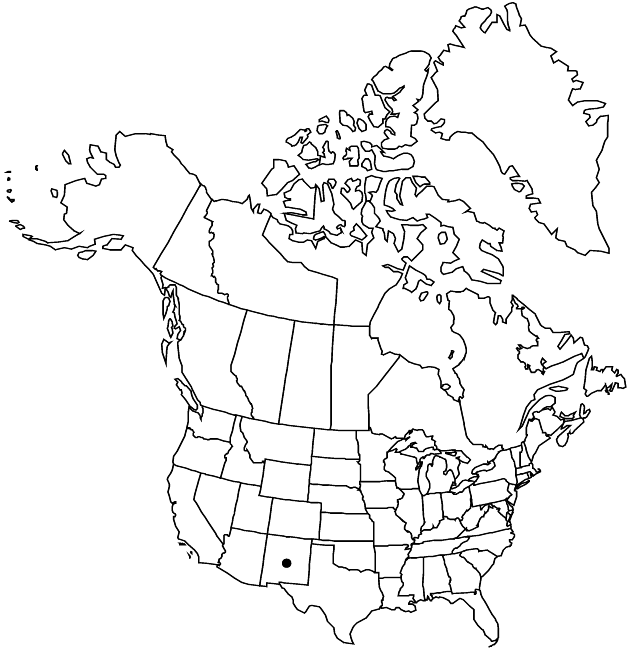Erigeron acomanus
Madroño 36: 115, figs. 2. 1989.
Perennials, 4.5–15 cm; taprooted, forming mats (10–70 cm diam.) connected by systems of lignescent rhizomes and caudex branches. Stems erect (grayish), sparsely strigillose (hairs whitish, stiff), eglandular. Leaves mostly basal (persistent, spreading or ascending, in rosettes at ends of caudex branches); (grayish) blades oblanceolate to narrowly obovate or spatulate, 8–23 × 2–7 mm, much reduced distally, margins entire (apices rounded to obtuse), faces moderately strigillose, eglandular. Heads 1. Involucres ca. 5 × 7–10 mm. Phyllaries in 3–4 series, lightly to moderately white-strigose, minutely glandular. Ray florets 16–30; corollas white, 4.5–9 mm, laminae not coiling or reflexing, spreading. Disc corollas 2.5–3 mm. Cypselae 1.8–2 mm, 2-nerved, faces sparsely strigoso-hirsute; pappi: outer of setae, inner of 20–25 bristles. 2n = 18.
Phenology: Flowering late May–Jul.
Habitat: Shaded, sandy slopes accumulated at the bases of cliffs of Zuni sandstone and Entrada sandstone, pinyon-juniper woodland
Elevation: 2000–2300 m
Discussion
Of conservation concern.
Selected References
None.
